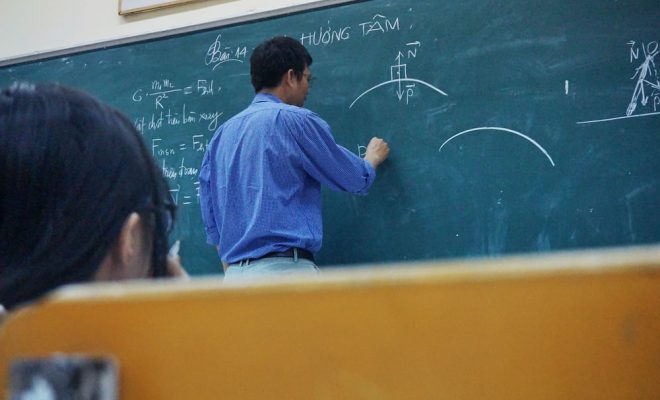2023 Best Master’s in Nutritional Science Programs

Click here to find out more about the ranking methodology that we used to compile this list.
Congratulations! If you represent a college or university that is included in this list, please collect your seal below.
Deciding which college to attend can be a daunting task. For many, it will be the most important decision that they make in their lives. To make an informed decision, you have to consider a lot of variables, such as cost of attendance, financial aid, student/teacher ratio, academics, student life, and more. These factors will either positively or negatively impact the quality of education that you receive.
Do you want to acquire a master’s degree in nutritional science, but don’t know what institution you should attend? Well, if you are as ambitious as I was in my late teens, then you want to attend a top school, instead of an average or mediocre one. Fortunately, we have already done the legwork for you. To help you find the right school for your interests and goals, we’ve compiled a list of 2022’s best master’s in nutritional science programs.
What institution did we forget? Leave your thoughts in the comment section below.
Tufts University is a prestigious, private research institution. Among Tufts’ graduate schools, the Friedman School of Nutrition Science and Policy has pioneered research and educational and community-service programs that improve the nutritional health and well-being of populations across the world.
The Friedman School has a master of nutrition science and policy intended for a wide range of individuals–from health professionals to recent graduates with a passion for nutrition. This is a world-class degree program that has multidisciplinary coursework that addresses nutrition science, international and US food policy, international nutrition programs, and applied research skills. Classes consist of:
- Economics for Food and Nutrition Policy
- Global Food and Nutrition Policy
- Statistical Methods for Health Professionals
Tuft’s master of nutrition science and policy is comprises of 10 classes–seven required classes, two electives, and a thesis. The degree program is intended to be manageable for working learners and is delivered in a blend of online classes and intensive campus-based experiences. Students learn from expert, prestigious researchers, and teachers.
Graduate Studies at UC Davis has a master of science in nutritional biology for a diverse learner body from around the world. Learners will experience state-of-the-art research facilities, productive laboratories, and a progressive spirit. UC Davis has cooperative and multidisciplinary curricula that the qualitative and quantitative skills necessary for professional research and teaching in nutritional biology. Emphases consist of:
- Biotechnology
- International and Community Nutrition
UC Davis’ MS in nutritional biology is a multidisciplinary 30-credit degree program with a huge amount of flexibility in class selection. Apart from the thesis prerequisite and one required seminar class, learners work with a graduate advisor to build a study plan that best reflects their specific interests. And for people interested in a terminal degree program, there is a non-thesis choice, which contains 36 credits of classwork and a holistic exam.
Initially established in 1867 as a state-supported, land-grant institution, the University of Illinois at Urbana-Champaign is a sizeable public research institution. The Division of Nutritional Sciences has a master of science in nutritional science featuring faculty from seven colleges on the Urbana and Chicago campuses. The multidisciplinary degree program has individualized study plans and extensive research alternatives. Learners get a holistic graduate education in nutrition that will catalyze multidisciplinary and transdisciplinary nutrition research. Classes consist of:
- Seminar in Foods and Nutrition
- Topics in Nutrition Research
- Biochemistry
The MS in nutritional science is a 32-credit degree program comprised of required and elective classes and a thesis (or an oral exam if you select the non-thesis choice). Learners will also have the chance to participate in an Academy of Nutrition and Dietetics sanctioned graduate dietetic internship degree program. This contains specific graduate class prerequisites and a six-month dietetic clinical internship. The university also has dual degree program option for qualified learners.
Purdue University is a top-rated public research institution; historically, Purdue has a STEM focus on top-rated programs in several areas. The interdepartmental nutrition degree program draws on many of these subjects, with faculty that deliver a wide range of expertise and training. Purdue’s Department of Nutrition Science has a master of science in nutrition science degree with several emphasis options. Learners select from one of four emphasis groups within the INP:
- Biochemical and Molecular Nutrition
- Human and Clinical Nutrition
- Animal Health, Growth and Development
- Public Health and Education
Purdue University’s MS in nutrition science is a 30-credit degree program that has a high degree of latitude when it comes to class selection. Learners need to finish core content and skill-building prerequisites, but they will work with their faculty advisor to build coursework that fits their professional objectives. And with Purdue’s highly competitive tuition, this degree program represents great value for the tuition dollar.
The Ohio State University is a nationally rated state institution and one of the largest, by learner population, in the country. With internationally renowned faculty, Ohio State’s College of Education Human Ecology (which houses the Department of Human Nutrition) is rated among the best in the country.
Ohio State’s Department of Human Nutrition has a research-focused master of science in human nutrition. Students learn the science of nutrition through classes in subjects across the institution, gaining foundational knowledge of the scientific relationships that exist among diet, health and disease, and how nutritional research can set public policy. Learners study numerous areas of nutrition, including:
- Food Science
- Macronutrient and Micronutrient Metabolism
- Global Nutrition
- Medical Nutrition Therapy
- Nutrition Counseling.
Ohio State’s MS in human nutrition is a 30-credit degree program comprised of five core classes, three research classes, electives, and a thesis. Learners have abundant chances for in-the-field training, with businesses continuously seeking learners for internships and externships across the school year.
The University of Minnesota is a highly rated national public research institution; the school has graduate programs offered via its graduate colleges. UMN’s Department of Food Science and Nutrition has a master of science in nutrition for individuals from an array of backgrounds. The degree program readies learners to thrive in positions—from research and teaching at the institution level to nutrition-related positions in government, healthcare facilities, and commodity organizations. Classes consist of:
- Nutritional Biochemistry
- Nutritional Physiology
- Nutrition and Genetics
UMN’s MS in nutrition is a 30-credit degree program comprised of four core classes, electives, and a thesis or culminating research project. Learners will also be able to get valuable work experience via an ACEND-endorsed an UMN dietetic internship. And all master’s learners obtain teaching experience at the institution level as well.
A land-grant state institution, the University of Connecticut is a nationally rated institution with a long history of delivering high-quality programs to Connecticut learners. The school has high-caliber undergraduate and graduate programs in nutrition via its highly regarded Department of Nutritional Sciences.
The University of Connecticut has a master of science in nutritional sciences, which takes a multidisciplinary approach to nutrition. The degree program is supported by other departments across the university and cooperative arrangements with other institutions. Program classwork develops an advanced level of knowledge in nutrition and related sciences along with research skills. Learners select from one of three emphasis areas:
- Biochemical and Molecular Nutrition
- Human Nutrition and Metabolism
- Community Nutrition
The University of Connecticut’s MS in nutrition sciences is a 30-credit degree program that contains a thesis choice and a non-thesis choice for people learners who want to finish a terminal degree in nutrition.
The University of Florida is a prominent state institution and a member of the prominent Association of American Universities. UF’s Department of Food Science and Nutrition has a master of science in food science and human nutrition. With 30 full-time faculty teaching around 100 learners in the degree program, learners can be assured of a close relationship with their professors. Learners participate in a rich academic environment and are able to tailor the degree to their career aspirations through areas of emphasis:
- Human Nutrition
- Molecular and Cellular Nutrition and Metabolomics
- Food Microbiology
- Food Processing
- Food Technology
UF’s MS in food science and human nutrition is a 30-credit degree program comprised of 24-class credits and six research credits. With only four required classes, learners have a broad scope in their class selection, within the limits of their emphasis area.
The University of Wisconsin-Madison is a major public research institution. The Department of Nutritional Sciences has a master of science in nutritional sciences with two possible areas of emphasis. Learners get a thorough comprehension of nutrition principles as they apply to humans. UW-Madison’s MS in nutritional sciences is a 30-credit degree program with few required classes. Thus, learners will be able to design a degree program within their emphasis area, which contains a research-based thesis. All learners are urged to get teaching experience via assistantships.
Rutgers University’s School of Environmental and Biological Sciences has a master of science in nutritional sciences that offers a broad, multidisciplinary comprehension of the field of nutrition along with focused knowledge in a chosen area of research. Research mentorships are carried out by distinguished faculty from Rutgers and the University of Medicine and Dentistry of New Jersey. Two emphasis areas are offered:
- Nutritional Biochemistry and Physiology
- Applied and Community Nutrition
The MS in nutritional science is a 30-credit degree program in which learners take classwork in nutritional sciences and connected concepts while carry out a research project culminating in a final thesis or dissertation. The research emphasis of Rutgers’ degree program makes it perfect for learners who intend to obtain a PhD in nutritional sciences or related fields and also for those seeking additional basic knowledge for jobs in research or teaching.
North Carolina State University is rated among the top 100 national institutions in the country. NC State has an interdepartmental master of science in nutrition that prepares learners for a wide variety of careers. For people wanting to pursue a career in research or a PhD degree program, the school offers a thesis choice. The non-thesis choice expands knowledge in the science of nutrition that will get leaners ready for jobs in public health, health, and wellness promotion companies and departments, and food and pharmaceutical companies. Emphasis areas consist of:
- Feed Science
- Human Nutrition, Food, and Bioprocessing
- Professional Science – Feed Science
Texas A&M has a master of science in nutrition that has a holistic comprehension of the science of nutrition. With an emphasis on the broad fields of basic and applied animal and human nutrition, learners perform research in a wide variety of areas under the guidance of faculty from several diverse departments. Classes consist of:
- Nutrition
- Biochemistry
- Physiology
- Statistics
Texas A&M’s MS in nutrition is a 32-credit degree program of lecture, seminar, and research classes along with a required thesis.
The University of Georgia is a historic, public research institution, and UGA is also a leader in foods and nutrition, with high caliber programs for qualified learners. UGA’s Department of Foods and Nutrition has a master of science in foods and nutrition. Classes consist of:
- Micronutrient Nutrition
- Advanced Macronutrients
- Special Topics in Foods and Nutrition
UGA’s MS in foods and nutrition is a 30-credit degree program with a thesis and non-thesis path. Programs offer a sizeable number of electives to customize your degree. The non-thesis path is intended for learners not wishing to work on a doctoral degree, and is designed to prepare learners for clinical, community, sector, government, and basic science careers. UGA also has an MS/dietetic internship that will qualify learners to take the exam to become a registered dietitian.
Case Western Reserve University is a medium-sized privately run institution. CWRU’s Department of Nutrition has a master of science in public health nutrition that readies learners for employment in public health or community agencies. The degree program is equally appropriate for recent graduates of a bachelor’s in nutrition degree program as for dietitians, nurses, and physicians wanting to improve their skills and credentials. Classes consist of:
- Introduction to Public Health Nutrition
- Nutritional Epidemiology
- Advanced Human Nutrition
The MS in public health nutrition is a 31-credit degree program comprised of six required classes and several electives. For people interested in becoming registered dieticians, CWRU has a coupled dietetic internship/master’s degree program. And for people wanting extra credentials, with the addition of extra classwork, there is also the choice to finish a specialty certificate in either maternal and child nutrition or gerontology.
The University of Texas at Austin is a state institution with one of the largest campus enrollments in the country. This enables great educational diversity, and UT Austin has an abundance of programs that rank among the best in the United States in addition to its research expenditures that exceed $550 million per year.
The School of Human Ecology at UT–Austin has a science-based, human-focused master of science in nutritional sciences that offers advanced training for dieticians and other health and wellness professionals. The coursework contains biochemical, molecular-biological, and clinical components. Learners will be ready for a wide range of careers in teaching, administration in public health programs, and technical positions at food, pharmaceutical, and chemical laboratories. Classes consist of:
- Research Problems in Nutritional Sciences
- Advances in Nutrition: Macronutrients
- Advances in Nutrition: Vitamins and Minerals






